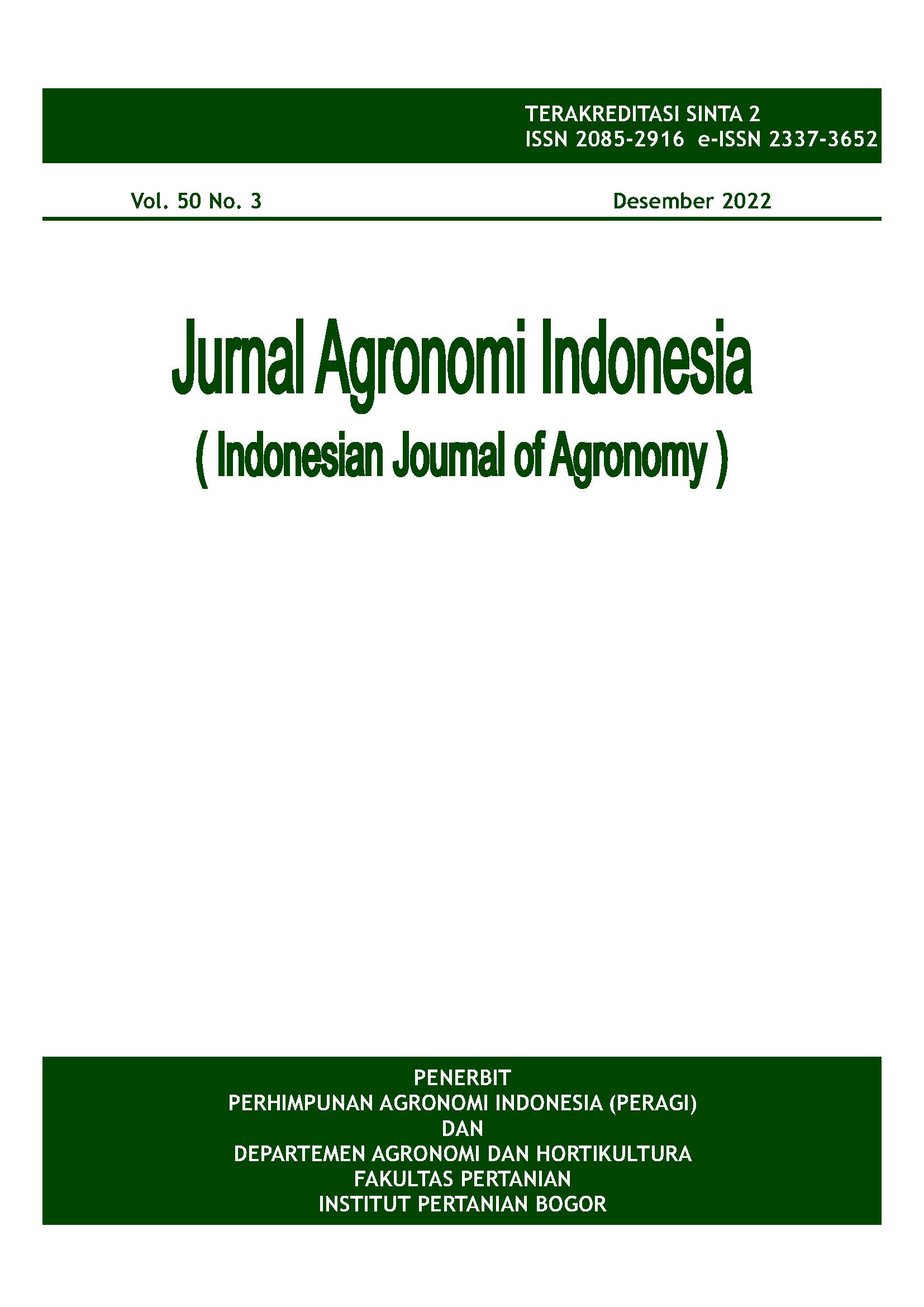Response of Exogenous Melatonin to the Performance and Development of Sexual Organs of Okra (Abelmoschus esculentus L.)
Abstract
Okra fruit is rich in benefits that are useful for meeting the nutrients needed by the body. Melatonin is a naturally occurring pleiotropic biomolecule found widely in plants and animals to increase yields, flowering, fruit formation and development, parthenocarpy, and ripening. The objective of the study was to determine the response of exogenous melatonin to the performance and development of generative organs of okra plants. The research was conducted from December 2021 to February 2022 in the cultivation area of PT. Gading Mas Indonesia Teguh, Ajung, Jember, Indonesia. Melatonin was administered exogenously by spraying all parts of the okra plant that had entered the generative phase. The experiment was carried out with one melatonin concentration factor with four levels, namely without treatment, melatonin 200 µM, 350 µM, and 500 µM. The treatment combinations were repeated five times resulting in 20 trial units. The results showed that melatonin affected the performance and quality of okra plants. The concentration of 350 µM resulted in the highest average leaf number of 14.8 leaves. A concentration of 500 µM resulted in the longest petal fall time with an average of 4.8 days and the percentage of successful fruit formation was 100%. The variable number of seeds was highest in the control treatment with an average of 57.2 seeds and the longest fruit ripening or ripening was at a concentration of 500 µM with an average of 33.6 days. Melatonin had no significant effect on fruit length and fruit diameter of okra.
Keywords: hormone, parthenocarpy, ripening, vegetables













